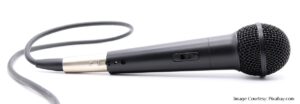 Introduction
Introduction
Welcome to the world of dynamic microphones, where exceptional sound quality meets un-rivalled versatility! Understanding the nuances and capabilities of dynamic microphones can significantly enhance your audio production experience. This comprehensive guide will delve into the intricate details of dynamic microphones, equipping you with the knowledge needed to optimize your sound engineering endeavors effectively.
What are Dynamic Microphones?
Dynamic microphones are a staple in the world of sound engineering. They are built with a robust design that can handle high sound pressure levels, making them ideal for live performances, studio recordings, and various other applications. These microphones operate on the principle of electromagnetic induction, utilizing a diaphragm and a coil to capture sound waves and convert them into electrical signals.
The Advantages of Dynamic Microphones
Dynamic microphones offer a plethora of benefits that make them a top choice for sound engineers:
- Durability: Built with sturdy materials, dynamic microphones can withstand the rigors of touring and regular use, making them long-lasting and reliable.
- Versatility: From capturing powerful vocals to handling loud instruments, dynamic microphones are adaptable for a wide range of audio sources.
- Cost-effectiveness: Compared to other microphone types, dynamic microphones provide excellent performance at a more affordable price point.
Key Features and Components
Understanding the essential components of dynamic microphones is vital for optimizing their performance:
- Diaphragm: The diaphragm is a crucial element that responds to sound vibrations and converts them into mechanical motion.
- Voice Coil: Attached to the diaphragm, the voice coil moves within a magnetic field, generating an electrical signal that mirrors the sound wave.
- Magnet: The magnet creates the magnetic field in which the voice coil operates, facilitating the conversion of mechanical motion to electrical signals.
Applications in Sound Engineering
Dynamic microphones cater to diverse sound engineering applications, such as:
- Live Performances: Their ability to handle high sound pressure levels makes dynamic microphones ideal for capturing live vocals and instruments.
- Studio Recordings: Dynamic microphones are perfect for recording electric guitar amps, drums, and other powerful sound sources.
- Broadcasting and Podcasting: With their robust design, dynamic microphones are a reliable choice for broadcast and podcasting applications.
Tips for Optimal Performance
To maximize the potential of dynamic microphones, consider these professional tips:
- Proper Mic Placement: Experiment with microphone positioning to achieve the desired sound quality and reduce unwanted noise.
- Use Pop Filters: Minimize plosive sounds and breath noises by incorporating pop filters during vocal recordings.
- Maintain Your Microphones: Regular cleaning and storage in suitable cases will ensure your dynamic microphones maintain their performance over time.
Conclusion
Congratulations! You’ve now embarked on a journey to master the art of dynamic microphones as a sound engineer. Understanding the principles, features, and applications of these versatile microphones will elevate your audio production skills to new heights. By implementing the provided tips and techniques, you’ll be able to unleash the full potential of dynamic microphones in all your sound engineering endeavors. Embrace the power of dynamic microphones and take your audio creations to the next level.
